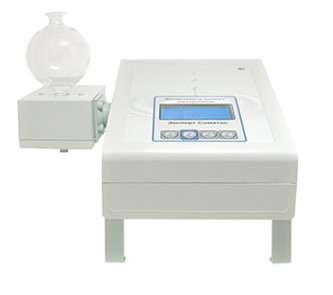Beekeepers forum was held in Tomsk

A satellite event of the Agrarian Meetings - the Forum of Beekeepers of the Tomsk Region - was held at Boiling Point. Representatives of government authorities , invited experts, honey sommeliers and beekeepers discussed current issues in the industry, technologies for producing high-quality honey, treatment of bee diseases, agrotourism and other issues.
At the opening of the forum, Deputy Head of the Department for Social and Economic Development of the Village - Chairman of the Production Committee Alexander Savenko presented letters of gratitude to the invited experts and Tomsk beekeepers, thanking them for their work and cooperation.
“Historically, it has happened that a beekeeper is an individualist, a person who works in an apiary, as a rule, alone or with several assistants,” noted Alexander Valentinovich. - But in recent years, thanks to grant support, the industry has been developing, a community of beekeepers has emerged who interact, communicate, share experiences, produce an increasingly better product, looking at each other. Industrial apiaries are opening, and small farms are growing and expanding, demonstrating a high professional level.”
Consultant of the livestock department of the department, Igor Breev, said that 87% of the beekeeping industry in the Tomsk region is concentrated in private farms, this is a nationwide trend (90-93% in Russia). There are 12.7 thousand bee colonies registered in the region, per bee colony there are 84 residents of the Tomsk region - according to this indicator, we occupy 4th place in the Siberian Federal District after the Altai Territory, the Altai Republic and the Kemerovo region. One resident consumes an average of half a kilogram of honey per year.
Deputy Head of the Department of Veterinary Medicine Sergei Nepomnyashchikh spoke about bee diseases and how important it is to carry out preventive measures, which begin with animal registration. He reminded beekeepers about the new veterinary rules for labeling and recording.
“Bees are subject to group marking by marking the hives, no later than 14 days from the date of settlement. A sign attached to the outside of the hive is used as a means of marking,” said Sergei Nepomnyashchikh. Rosselkhoznadzor
representative Elena Voskanyan noted that when importing bees from abroad, it is necessary to find out whether import from a certain country is allowed and to comply with quarantine rules. The second part of the forum was devoted to current problems in beekeeping and new solutions for the development of the industry. Within the framework of the cooperation agreement between the Tomsk region and the Republic of Belarus
At the forum, a Minsk expert - head of the center for scientific beekeeping, head of the industrial beekeeping laboratory of the Republican Unitary Enterprise "Institute of Fruit Growing" of the National Academy of Sciences of Belarus, Dmitry Rakhmatulin, spoke remotely. He spoke about the main aspects of treating bee colonies against diseases, primarily varroatosis and nosematosis.
“The main reasons for the death of bees today, in addition to insufficient hygiene, beekeeper errors and fungal diseases, are varroatosis and nosematosis. The structure of the bee's digestive system allows it to be almost 100% protected from viruses. There is only one way to become infected - from a tick through its puncture. Therefore, it is important for beekeepers to carry out constant work to combat mites, including zootechnical methods, for example, by installing a subframe (mesh bottom) and isolating queens. And, of course, it is important to use drugs that can “knock out” ticks from families, allowing you to save the apiary and continue to work,” said Dmitry Rakhmatulin.
Nosema is a disease caused by parasites, they are very resistant to external factors and can survive under hives for up to 5 years. If some bees are infected, you need to remove the common drinking bowl so as not to infect healthy individuals. There are drugs that can cure this disease, but they are prohibited for use in food producing animals as they end up in the final product. The safest method of treatment is herbal preparations, as well as disinfection.
The third section of the forum was devoted to the diversity of Siberian honeys and their characteristics. Beekeepers and honey sommeliers spoke about their experience in the production and evaluation of honey, touched upon the issues of agrotourism, treatment with beekeeping products and interaction with bees.
After the main part of the forum, a tasting of the best samples of Siberian honey took place, where experts shared the basics of proper tasting, and everyone could feel like a honey sommelier, evaluate the samples according to certain parameters and give points.



























































